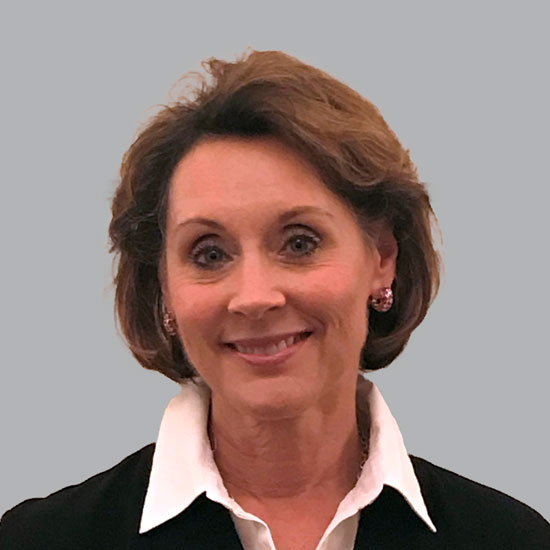The Evolution of Noncredit Course Management
Former Analyst

While nondegree programs have been in existence for more than a decade, in the last few years—especially as a result of the COVID-10 pandemic—the market has seen a shift from primarily supporting continuing education, lifelong learning, and workforce development to introducing new types of nondegree learning, such as certificate programs, economic development upskilling, corporate training, conferences and events, and more. The institutional market landscape for noncredit course programs is broad and deep, and its offerings come in all shapes and sizes.
As the US workforce increasingly seeks to gain in-demand competencies and skills to excel in their careers via nondegree learning programs, one of the trends is nondegree certificate programs designed to help students and adult learners build new skill sets, increase their knowledge in specific areas, and earn educational credentials that will allow them to excel in their current job or reskill for another position. Certificate programs are becoming increasingly popular with adult learners who have full-time jobs, need to reskill for a promotion or a new career opportunity, and do not have the time or resources to commit to a degree program.
While some certificate nondegree programs are not extensible, more institutions are starting to support stackable pathways that allow students to aggregate earned certificates over time and transfer them into an undergraduate or graduate degree program. The number of individuals seeking higher education certificates and other credentials is increasing and remains an untapped market for many institutions.
There has been noticeable success with nondegree programs used for economic development and workforce readiness, especially in areas that are trying to train and reskill community workers to attract new industries. Economic development training is generally seen in vocational schools; high schools; public, two-year schools; and community colleges, and these programs are often publicly and privately funded and operate with a long-term trajectory.
Another emerging trend is the expansion of corporate and professional partnerships. Some strategically minded institutions have recognized the opportunity to leverage nondegree programs to capitalize on immediate, recurring, and local business needs and establish partnerships with corporate and industrial entities. Flexible timing, instruction, and location allow noncredit course management programs to develop innovative, just-in-time programming to meet corporate training and education needs.
As nondegree learning programs continue to experience growth, credentialing and proof of completion are trending toward digital certificates, professional certifications and licenses, and other stackable and competency-based credentials. The Comprehensive Learner Record (CLR) Standard, recommended by the American Association of Collegiate Registrars and Admissions Officers, offers a new generation of verifiable and secure learning and employment records designed to support academic and workforce achievements, including courses, competencies, skills, and more. The CLR Standard leverages the Open Badges standard and is compatible with W3C Verifiable Credentials and the Credential Engine Registry. It also defines a technical specification designed to support traditional academic programs and co-curricular and competency-based education. The number of US institutions jumping on the CLR bandwagon is gaining momentum.
Although some institutions go down the nondegree path to increase revenue shortfalls from traditional academic programs, many institutions that stand up nondegree programs struggle to be profitable, especially smaller institutions that do not have strong brand awareness. Some institutions find that standing up a noncredit program is more expensive than incoming revenue streams when they consider the outlay of costs associated with software, staff, faculty, marketing, and more. Tambellini finds that some institutions receive grants for noncredit course programs and abandon the project at the end of the grant period due to lack of revenue and ongoing funding. Institutions that excel in these types of programs are typically larger institutions with a substantial following across their students, alumni, and community and a clearly defined target market.
As institutions either evaluate or reconfirm their position on nondegree learning programs, they should honestly assess their intentions. If revenue generation is your institution’s goal, then you may want to reflect on what you want to achieve. If you seek an additional revenue stream and at a small institution with no defined niche market, nondegree programs may not be your best option. However, if you want to make a difference in your community and are willing to weather the startup costs and challenges, then nondegree programs are a viable option. There is also stiff competition with many established players in the market. A vast number of adult learners search online for program options. Thus, to excel in nondegree course revenue generation, institutions must be a player in the SEO game, which comes at a significant ongoing cost.
Categories
- Academic Administration
- Advancement
- Content Management
- CRM Platforms
- Customer Experience (CX)
- Cybersecurity
- Data Management and Analytics
- Enterprise Portals and Mobile Apps
- Event Management
- Finance
- HCM/HR
- IT Tools and Infrastructure
- Life at Tambellini
- Services
- Student
- Teaching and Learning
- Technology Leadership
- Thought Leadership
- Uncategorized
Share Article:

Other Posts From this Author:
© Copyright 2024, The Tambellini Group. All Rights Reserved.